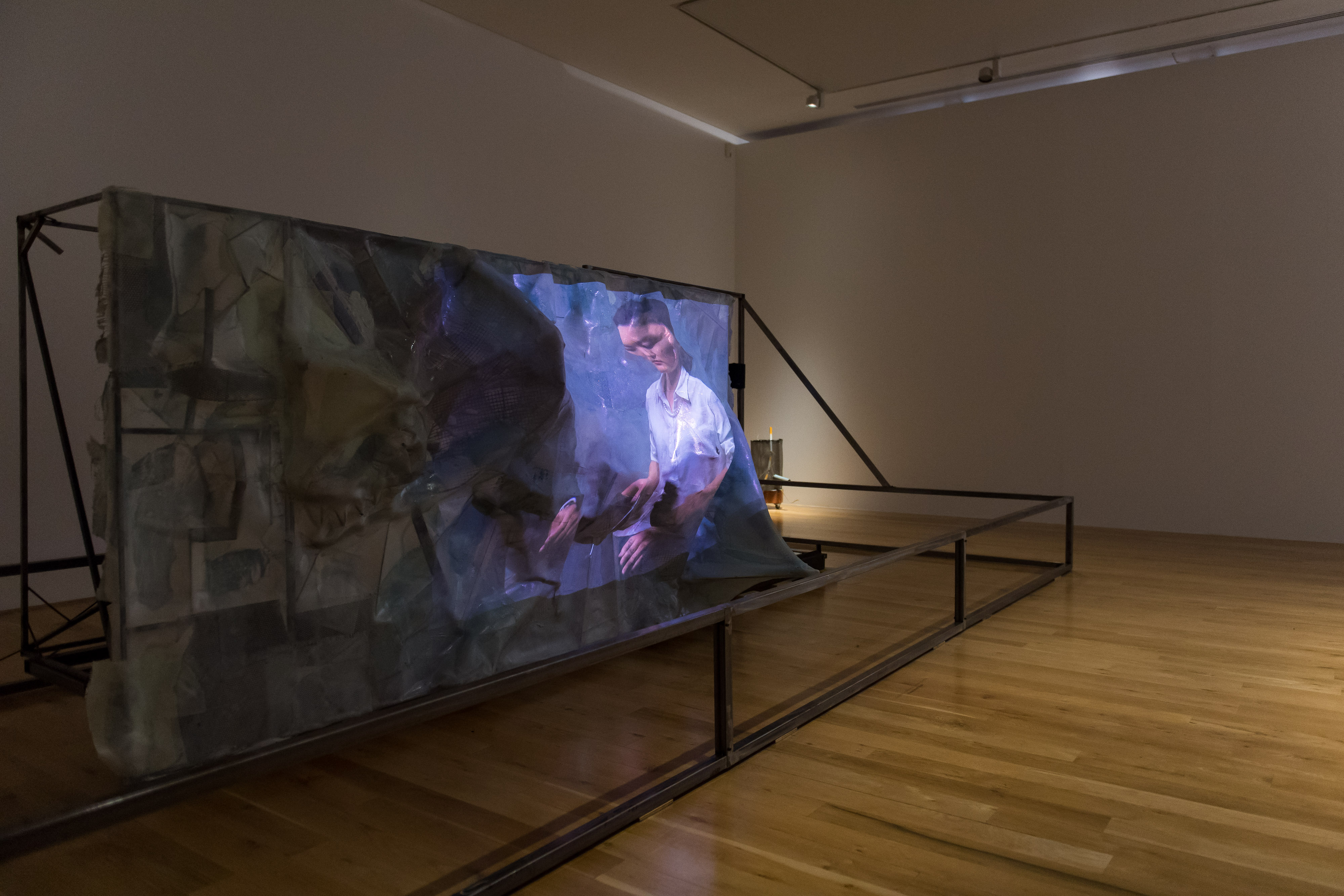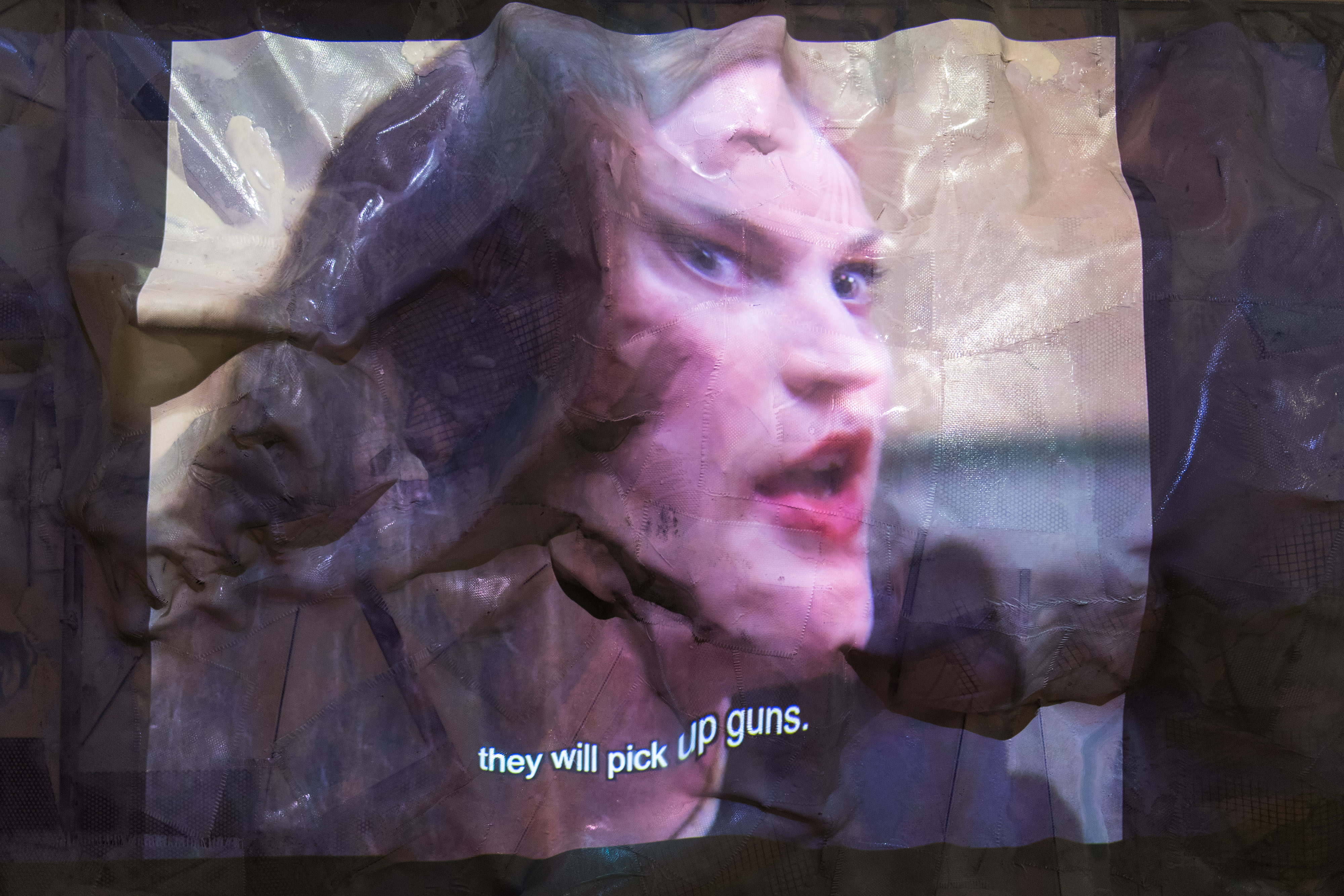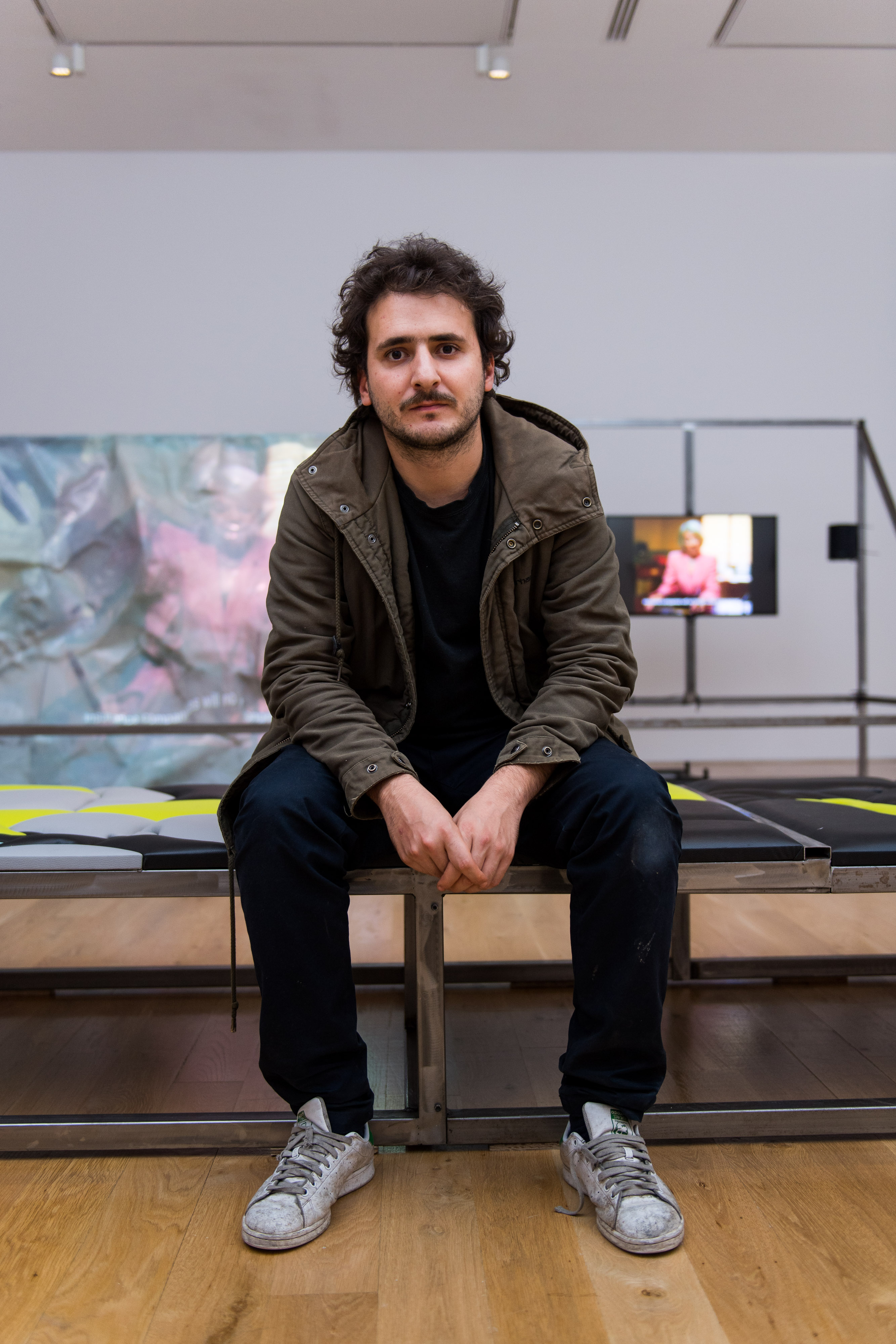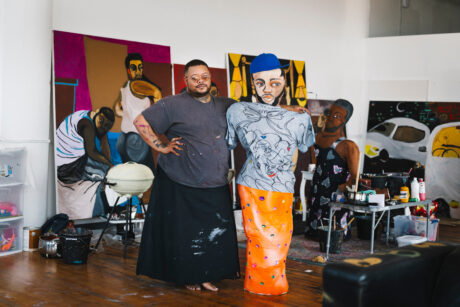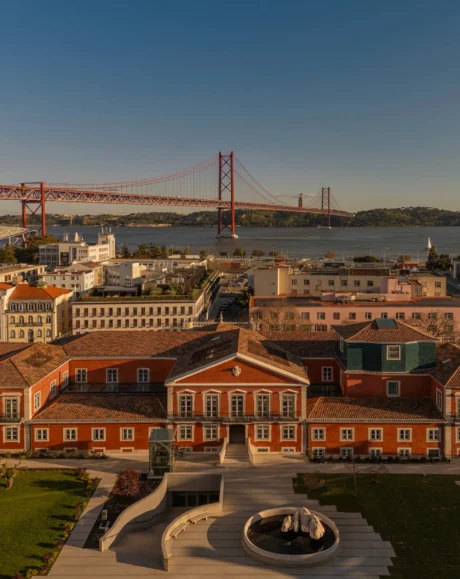Artes Mundi 7 is themed ‘the human condition’, and as one might predict with such a subject it throws up an exceptionally wide range of art. Indeed, it might come as a surprise to some visitors that there is one underlying theme at all, such is the diversity of work, artists, and direction on show.
Acclaimed Welshman Bedwyr Williams shows the Orwellian Tyrrau Mawr alongside the arguably even more acclaimed Englishman John Akomfrah with his series of short films about migration, Auto Da Fé. The outlandish Future Farmers present their seed handouts and tales of travelling from Norway via the UK to the Middle East on a journey to make flatbread.
One of the most compelling of those whose work is on show is the spectacularly named Angolan artist Nástio Mosquito. His exhibition, The Transitory Suppository, combines installation, video and performance art, as he sets up a room like a 90’s American dive bar – plastic chairs, beer bottles and an old box-television mounted in the corner – and shows videos of himself playing the part of would-be politician A.L. Moore (fictionally) hell-bent on rising to power in Botrovia (also fictional). This interesting character study is evocative of the recent Weiner documentary in its candidness, presentation and rendering of personality. The figure is frequently seen singing to himself in the toilet, boasting to imaginary listeners about the size of his penis and engaging his aides in cynical political strategy discussions over the phone. Mosquito assures me he has heard of neither the film nor the real-life politician who serves as its central figure, and delights in hearing of the parallel and the well-publicised scandal which derailed Weiner’s campaign for mayor of New York (another pretty fantastic name, given the circumstances).
Mosquito can be both elusive and insightful in discussions about his work, simultaneously rebutting questions and throwing more into the ether: “I don’t want to talk about ‘what the work is about’.” he tells me. “I don’t want to be an asshole but that’s not the dialogue I want to have. It’s very important to me that I don’t put limitations on the experience you get from the work by talking about it or giving any hint of interpretation.” We move onto A.L. Moore: “I was tackling leadership, and I drew upon many leaders. Not just political leaders but ‘leadership’ as a broader term, corporate leaders too.” I ask about the character’s policy of using crime to regulate society: “How we behave is very much a consequence of how you regulate crime and public behaviour. A lot of people on the African continent, for example, would come to Europe and think ‘look how civilized they are.’ The only reason is that some law put there fifty fucking years ago keeps people right in place. It creates a sense of behaviour. At the core of that particular comment is the idea of mass behavior.”
Aside from Mosquito, thought provoking contributions are not in short supply. Bedwyr Williams’s entry comes at the same time as his characteristically outlandish show at the Barbican, The Gulch, yet this is far more ‘Black Mirror’. He creates a slow-moving video landscape of a fictional city sprung in the mountainous Welsh valley known as Idris’ Chair, overlaying stories being told of the individuals living in the city, the mundane and ordinary aspects of life eventually painting an unsettling and dystopian picture of what it is to live in this futuristic settlement. Another entry is World Domination by Neïl Beloufa, who collected non-professional actors and had them play a sort of mock UN scenario. They were asked to discuss a range of global problems such as poverty, war and immigration, and the speed at which they start talking about nuclear weapons, mass murder and destruction in fairly laid back terms is revealing of many aspects of the human psyche.
The ‘human condition’ theme of Artes Mundi 7 is surely the greatest success of the competition, and has inspired some truly enthralling works – yet Mosquito’s remains the stand-out for me. Somehow, a mock-up of a Trumpian leader singing his own praises combined with a staged mishap with a giant crate of fake suppository boxes provides not only the light relief, but also the heaviest of political discourse. This ability to combine the macabre, facetious and politically serious is one which typifies Mosquito’s work, and against the backdrop of ‘the human condition’, it is a perfect fit.
‘Artes Mundi 7’ is showing at Chapter and National Museum Cardiff until 26 February 2017.




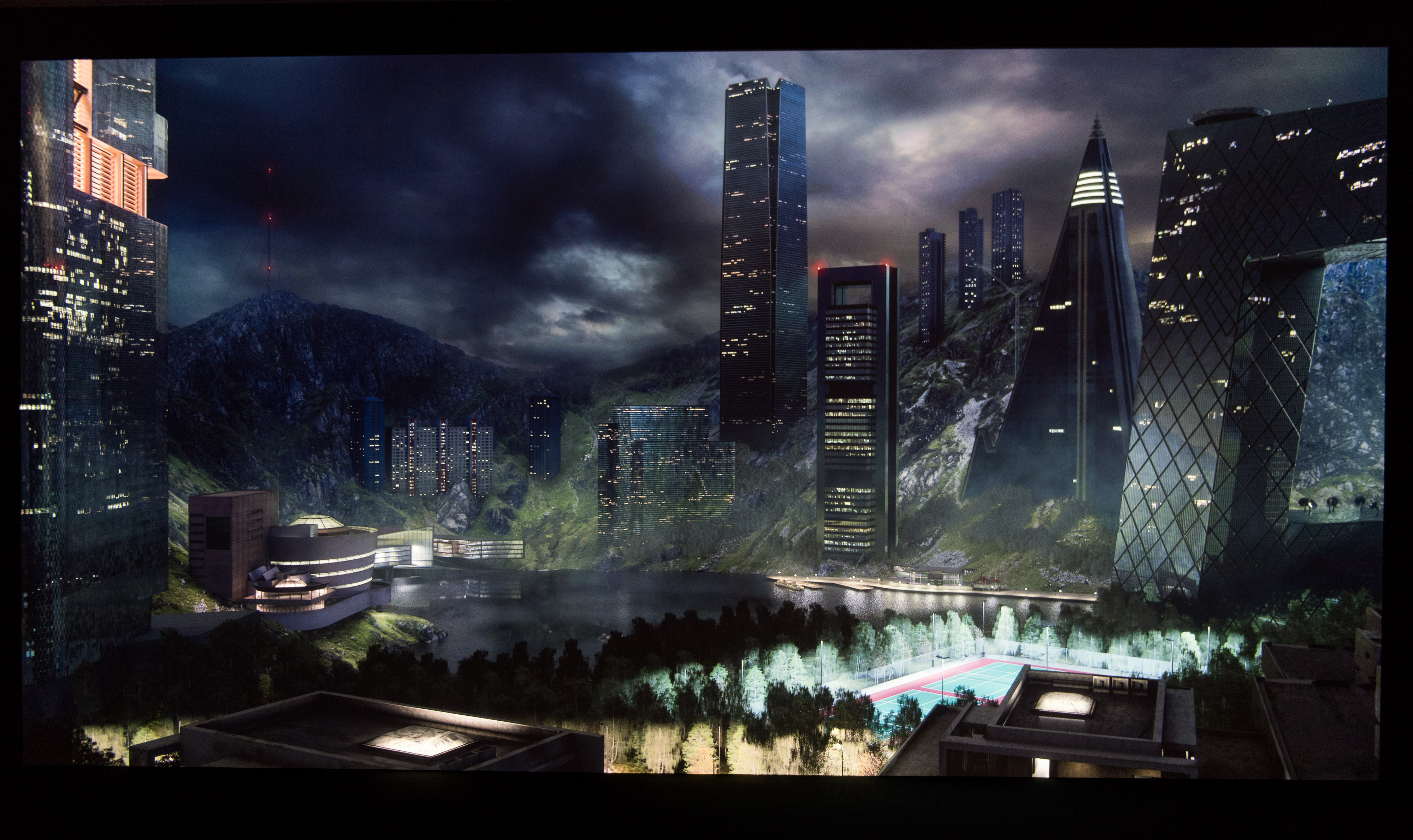
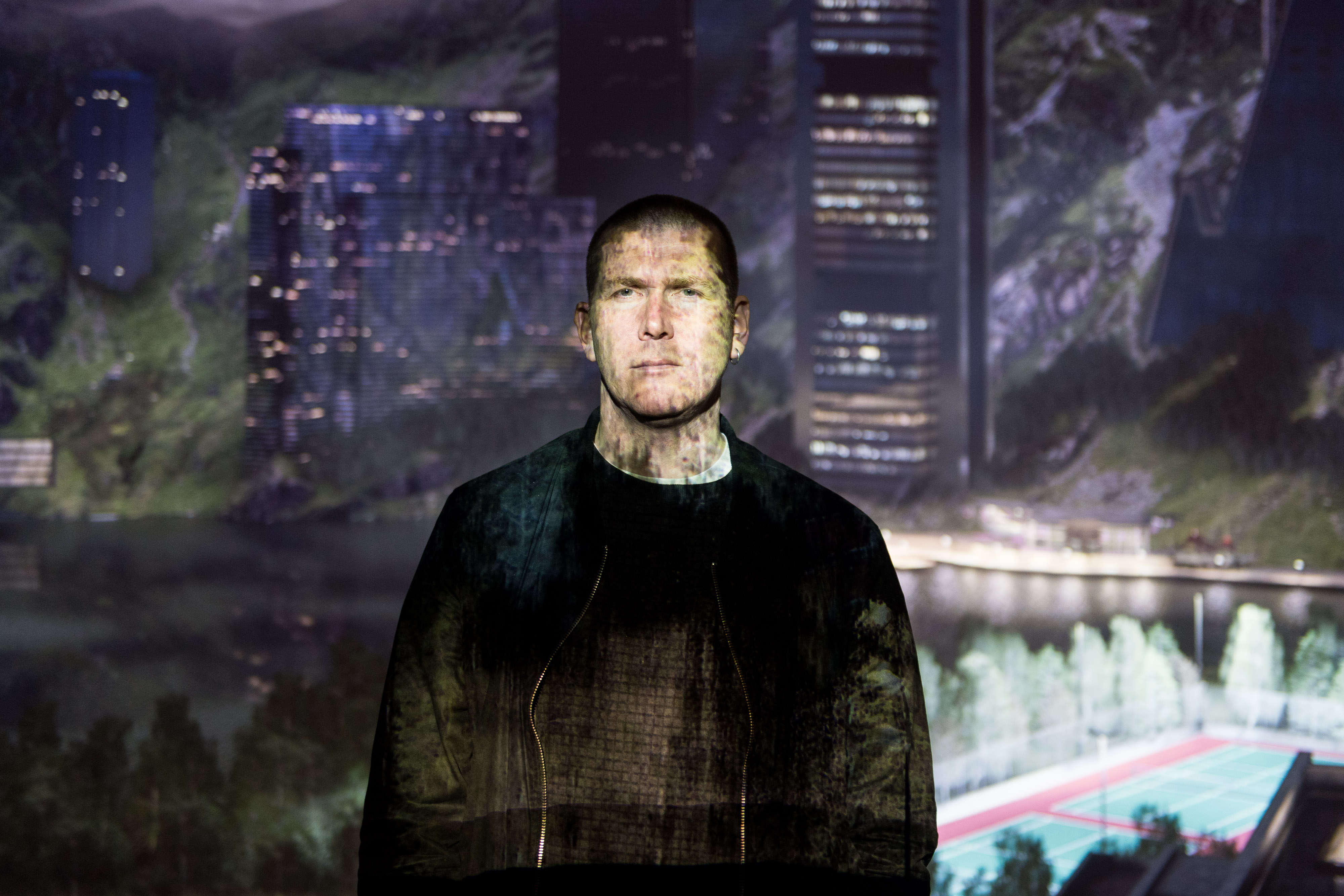
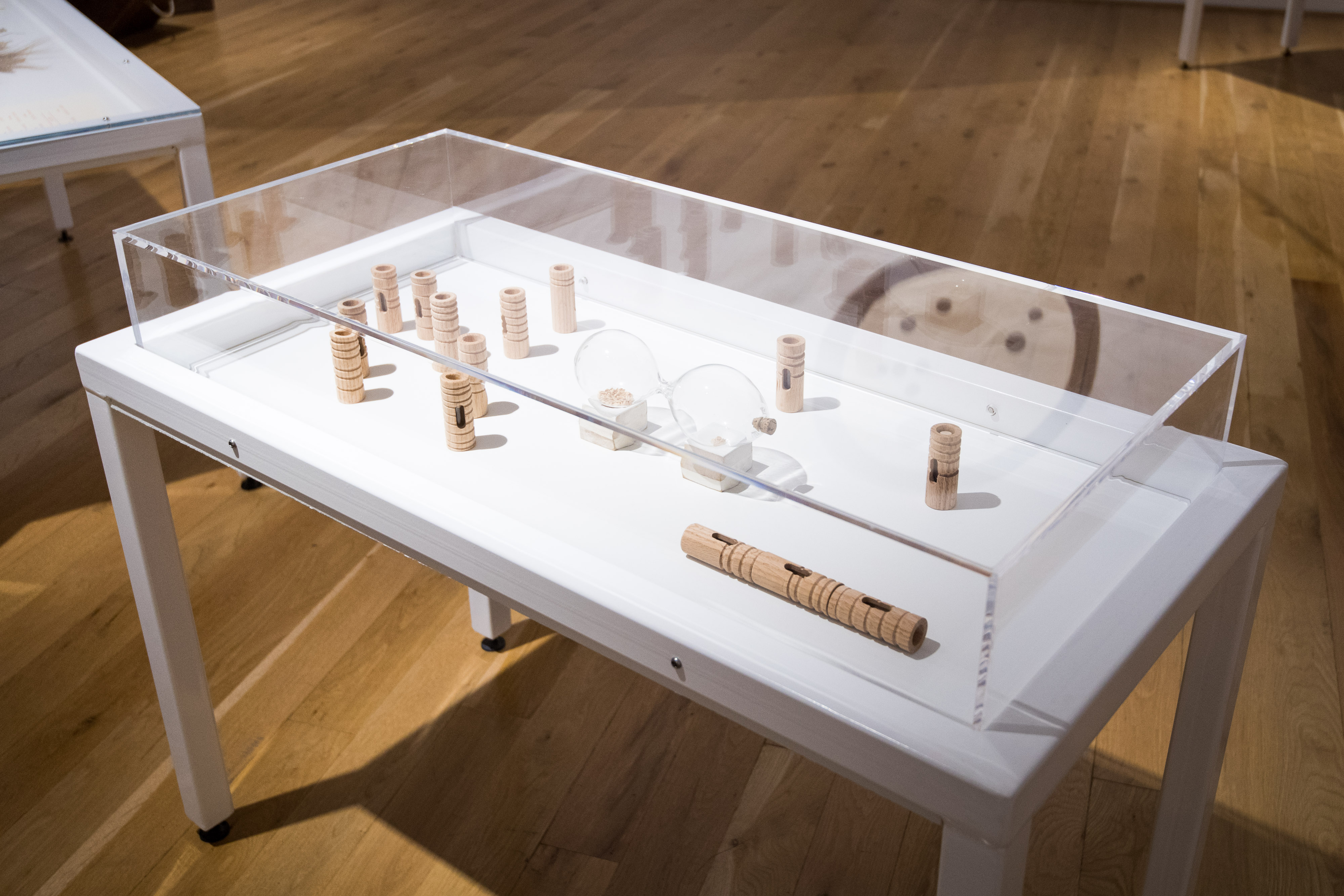
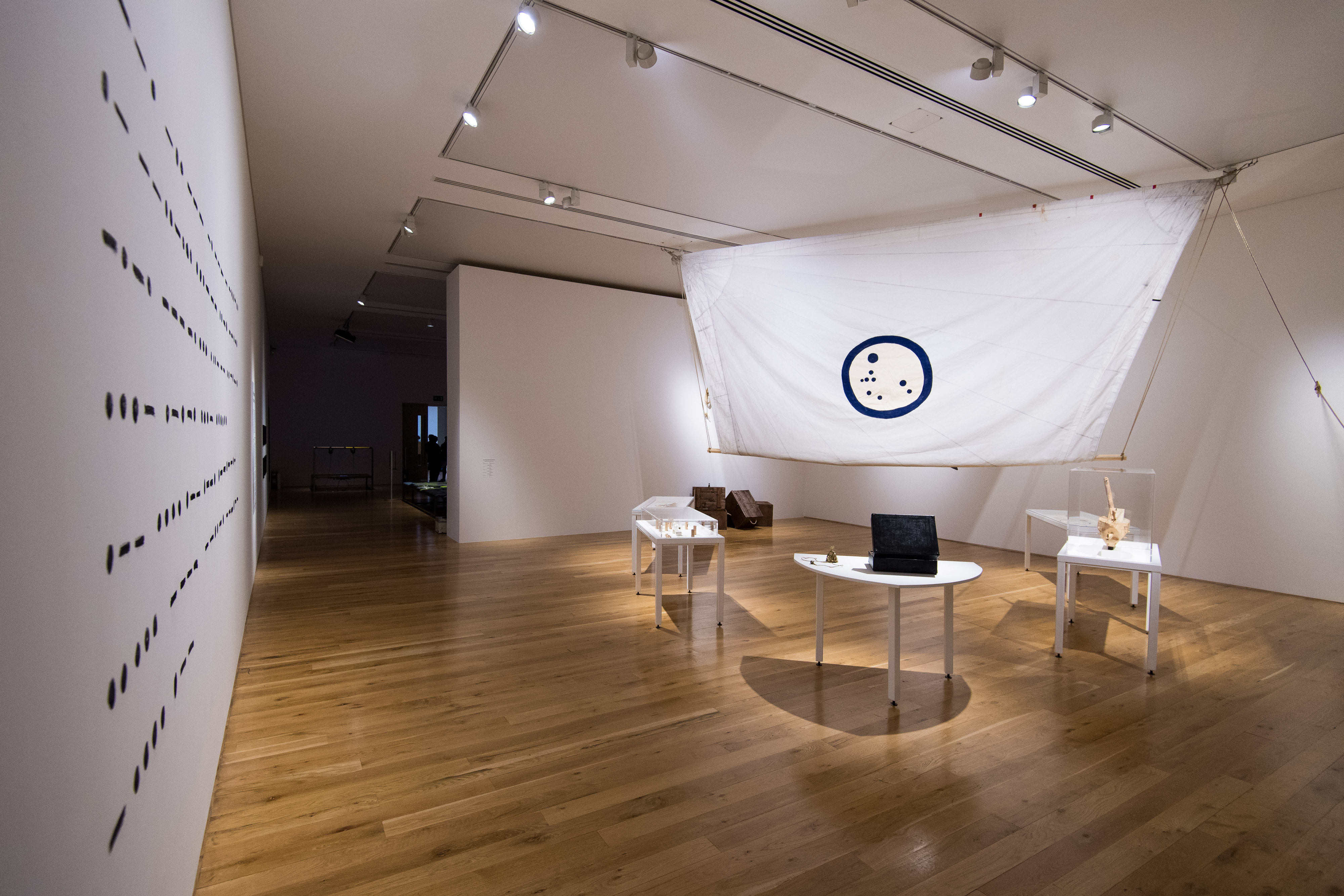
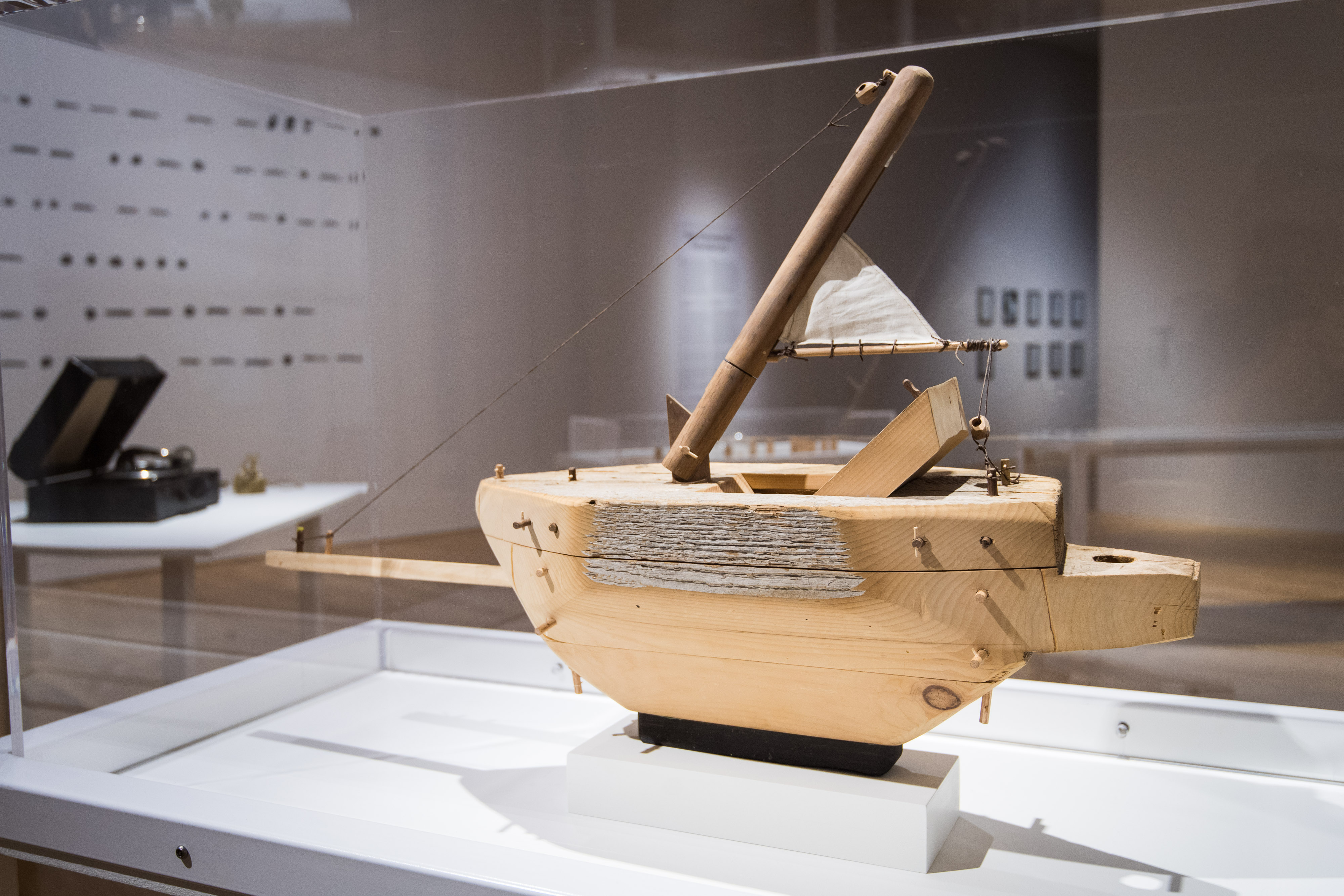
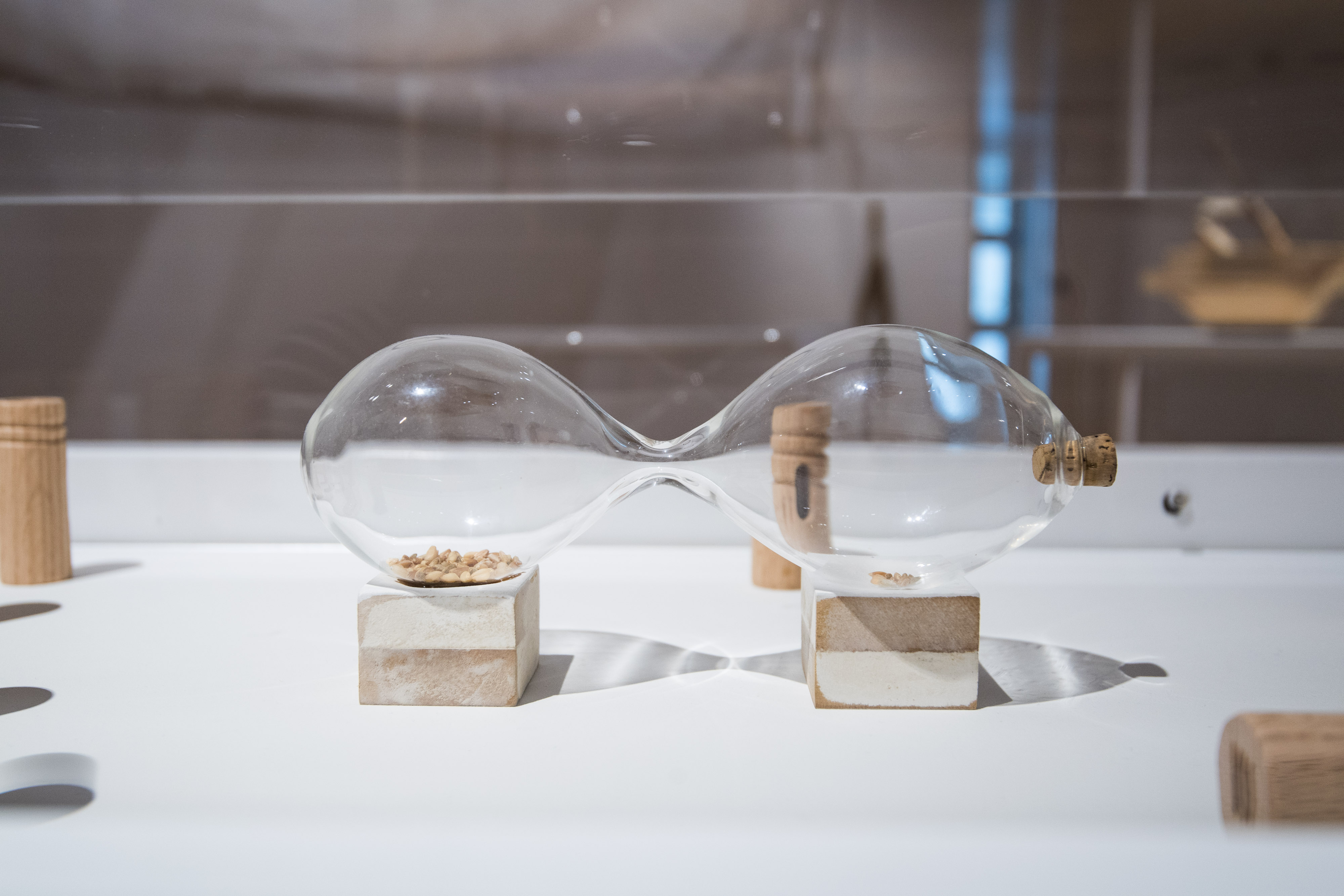
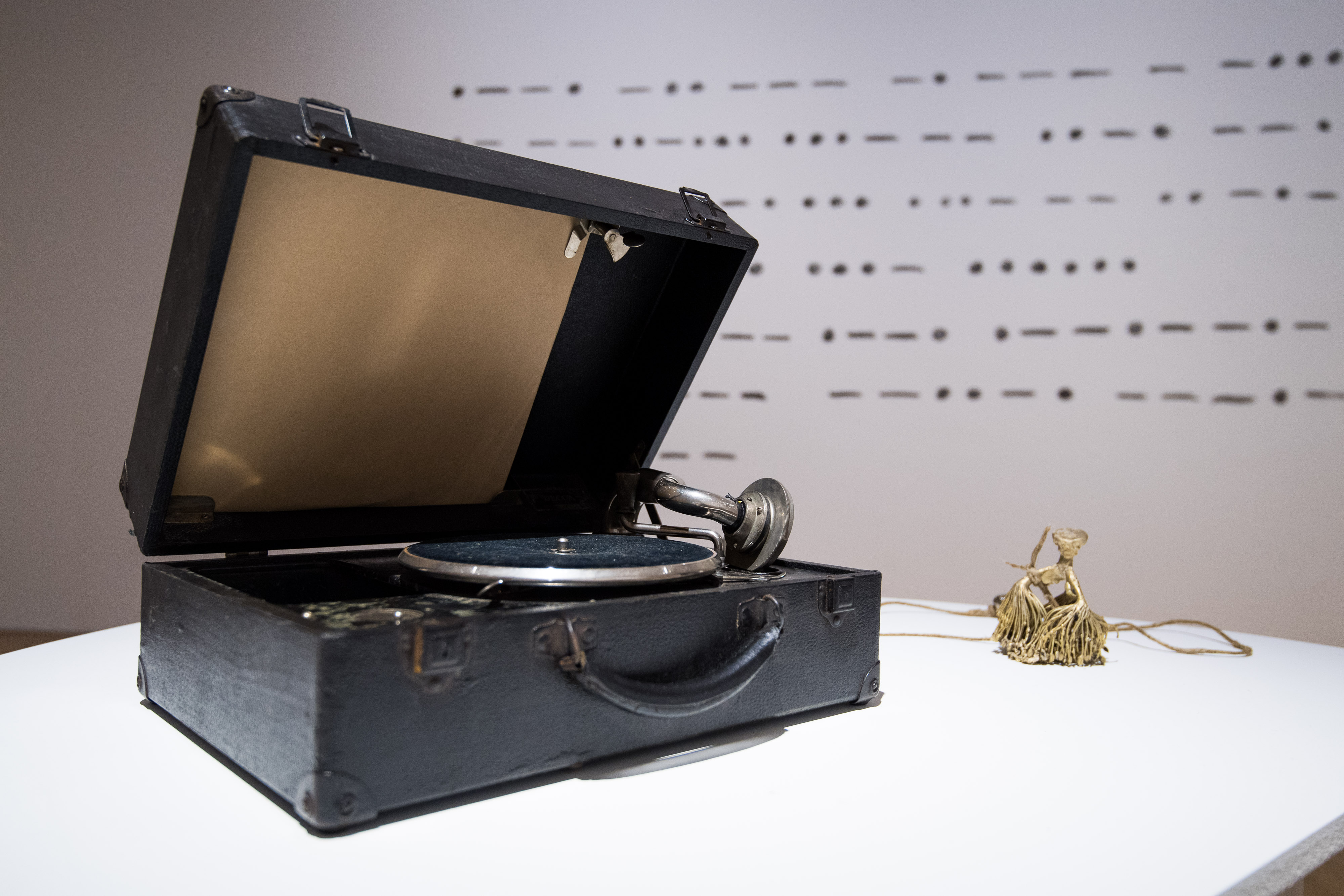
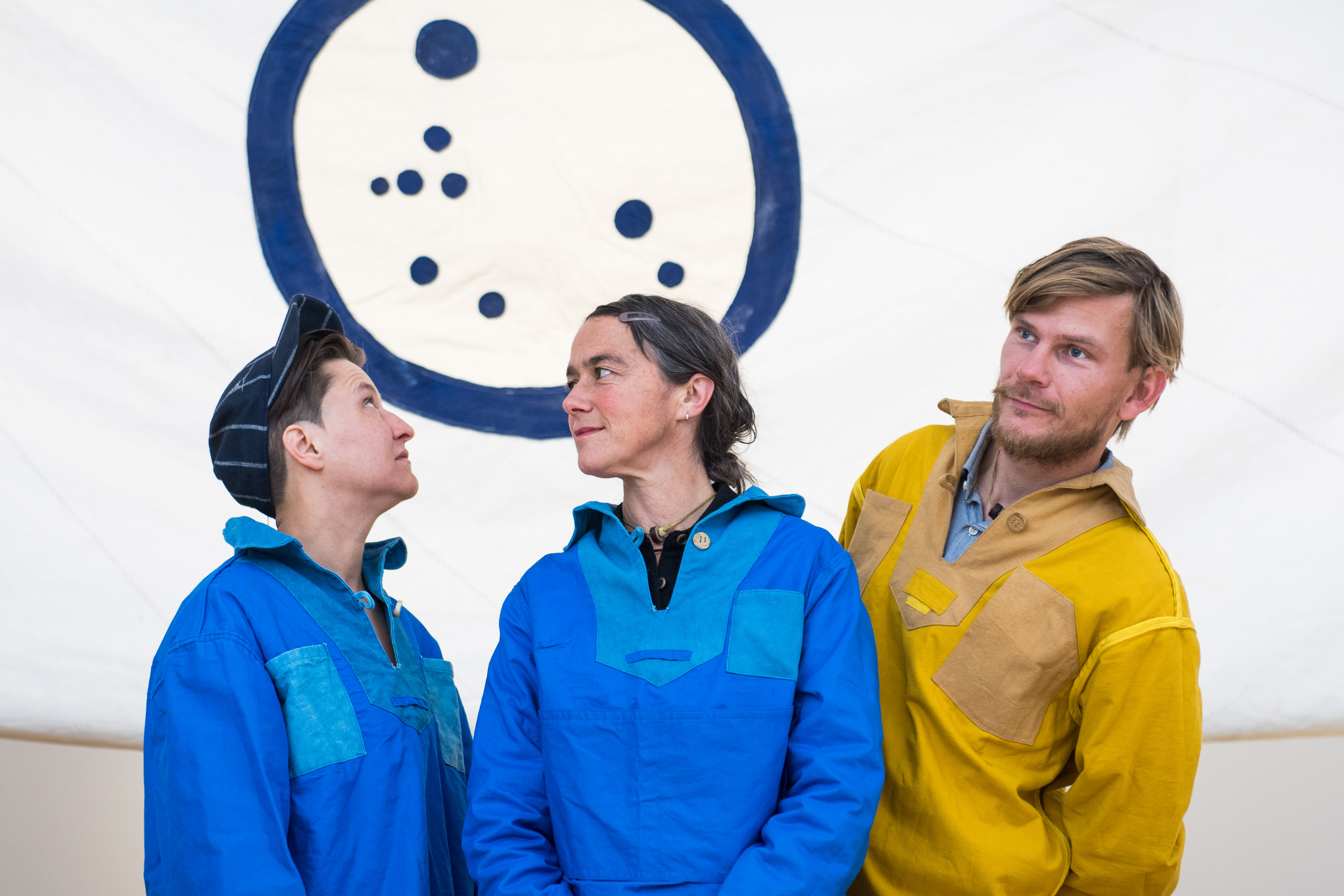
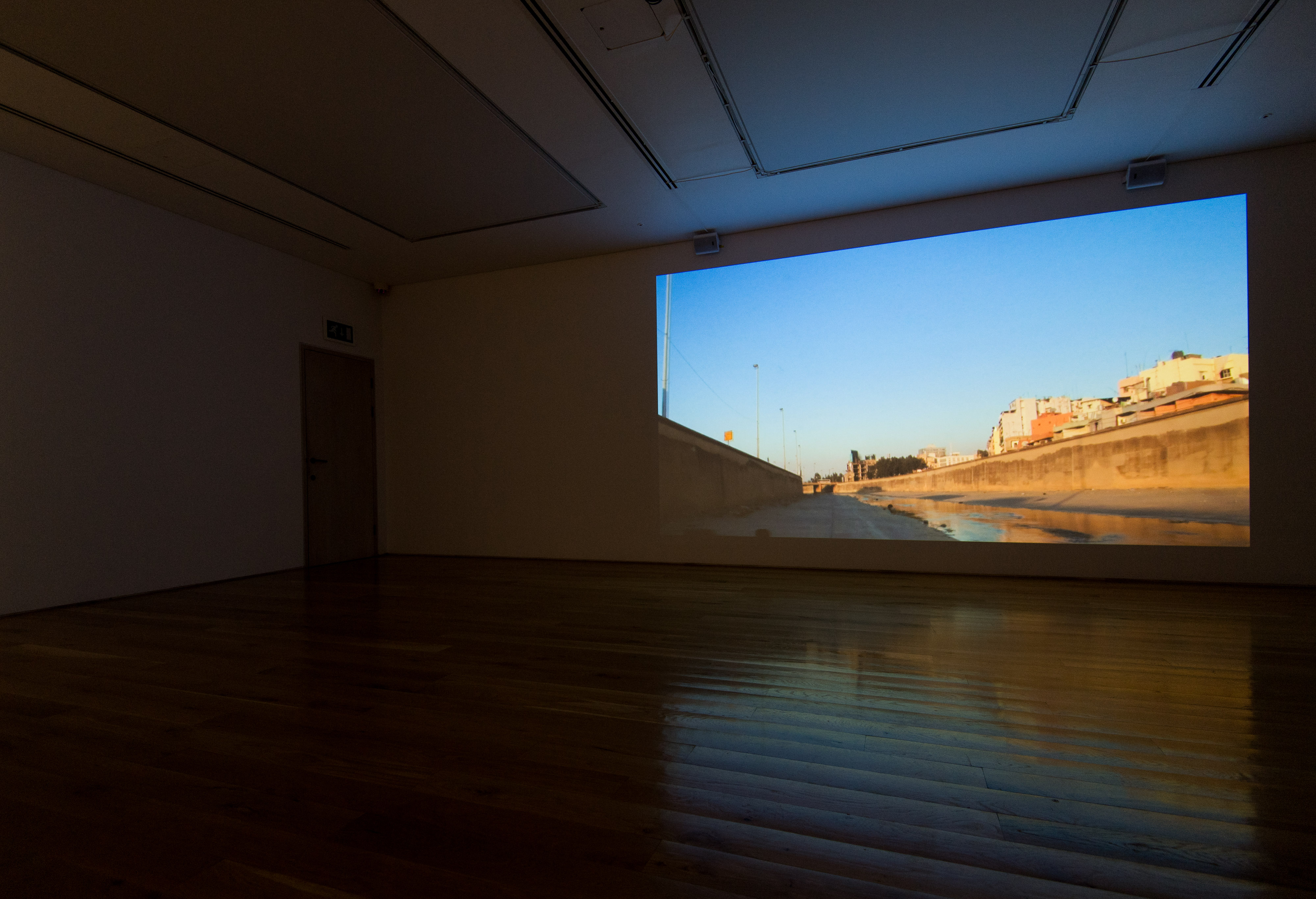
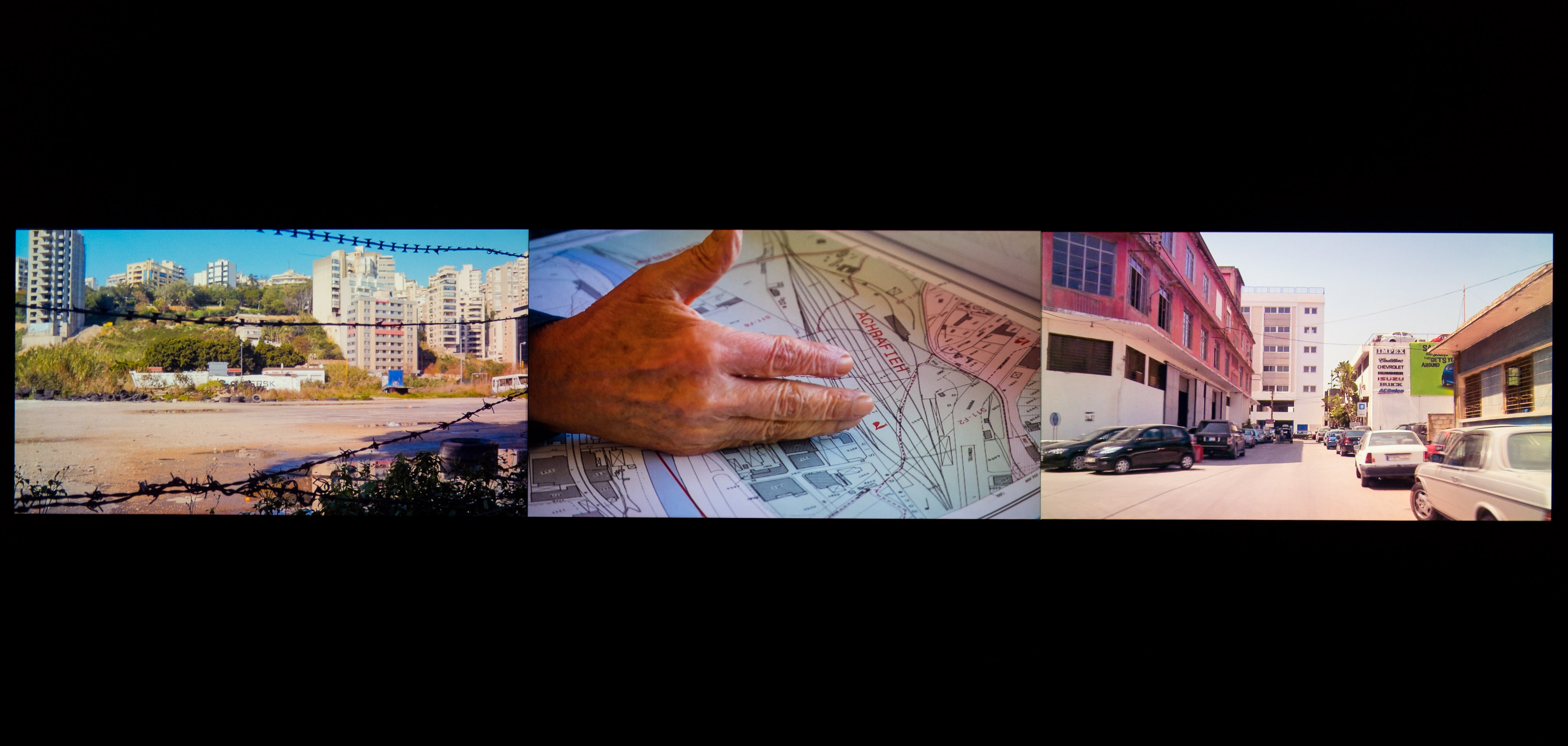
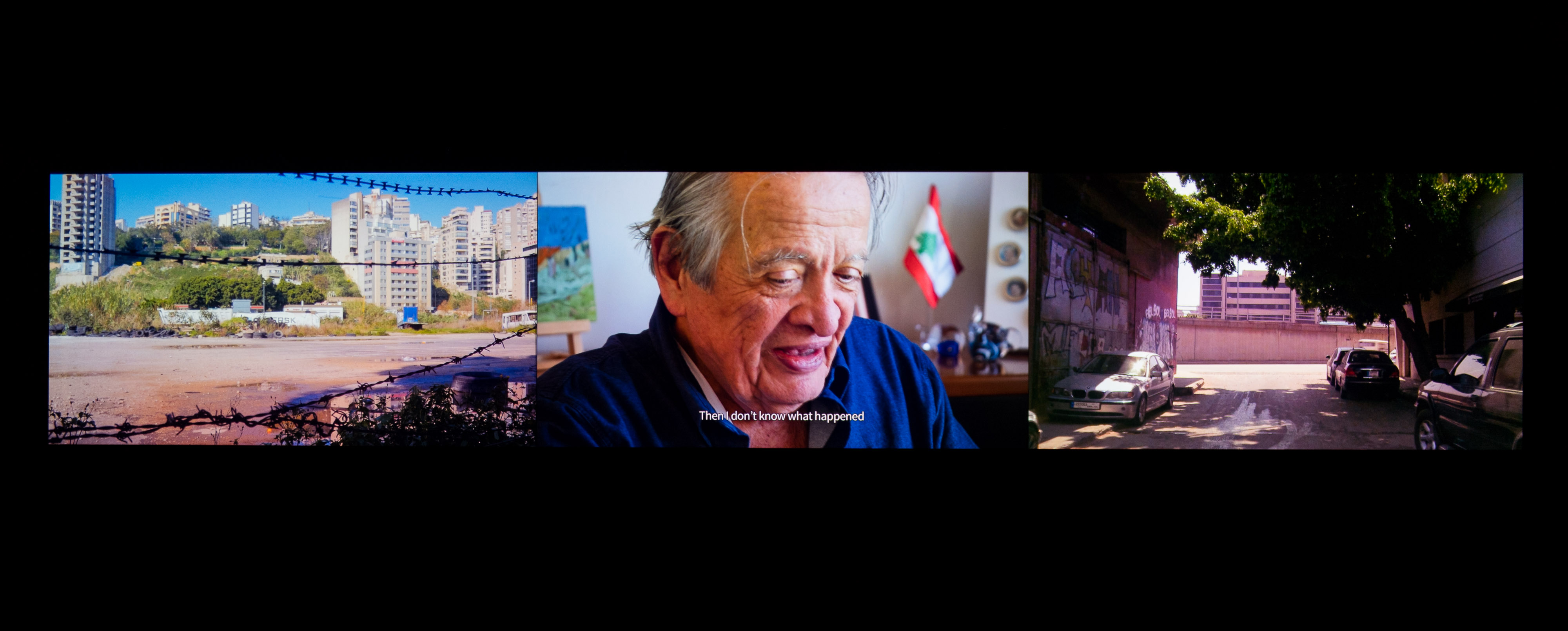
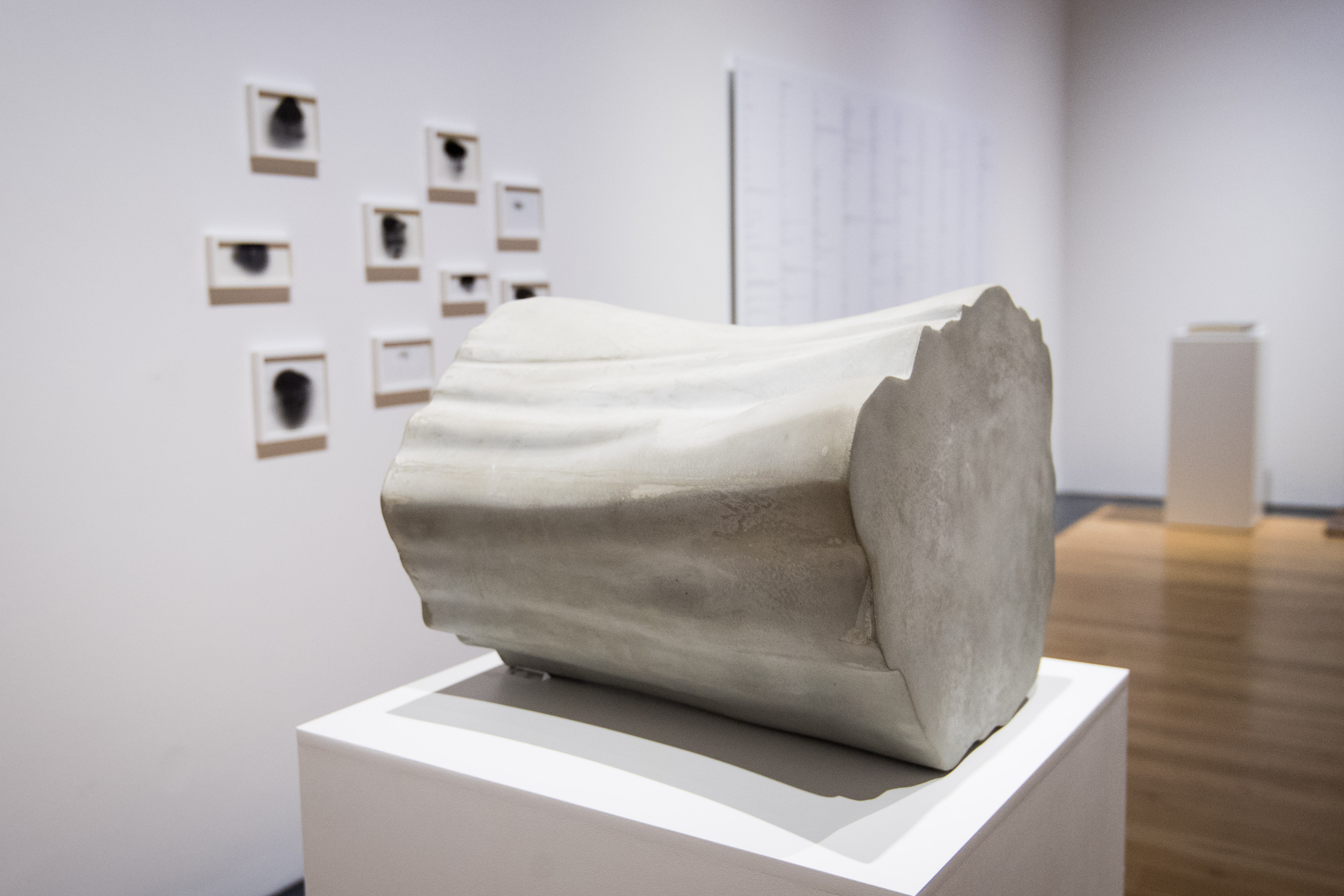
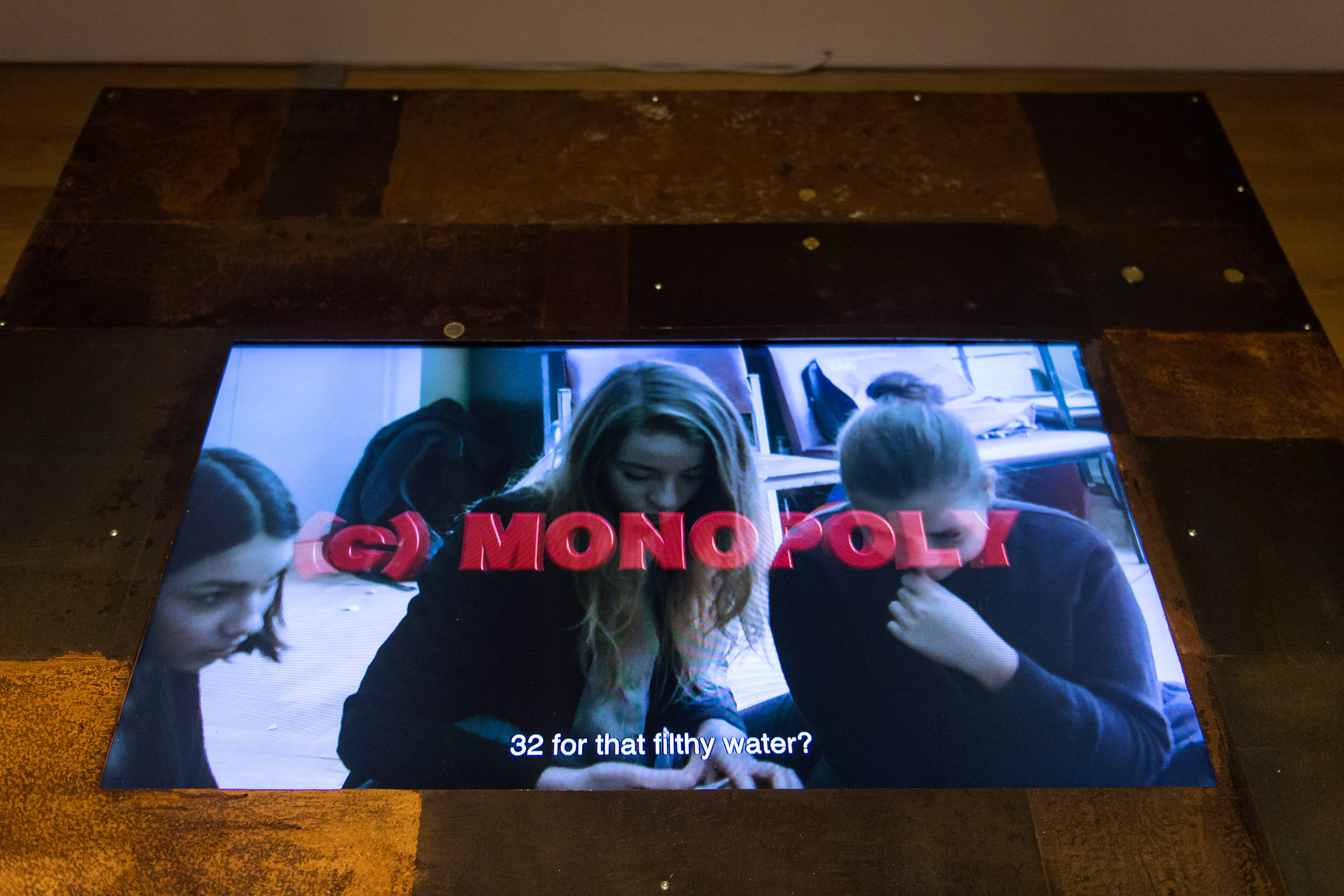
Neil Beloufa, Ukranian Monopoly
